Busking battle: Auditions go public for coveted Tube gigs
- Published
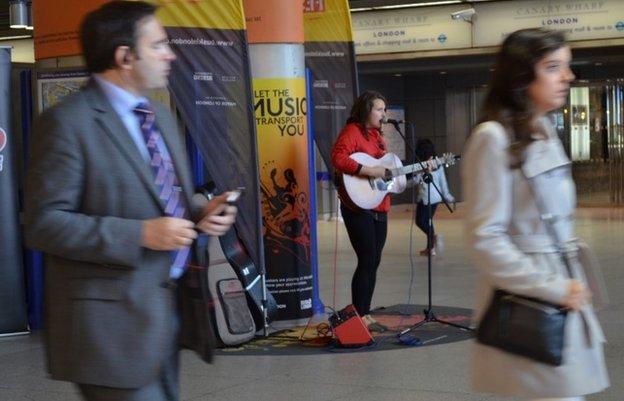
Singers throwing their voices above the crush of commuters and late night saxophonists have made busking synonymous with the Tube. Now the battle for a coveted spot on the Underground stage is being played out in public, with auditions being held at Tube stations for the first time.
London's Underground is unlike the street corners and underpasses most buskers call their stage. With a daily footfall of 3.5 million, the audience is the equivalent of Wembley Arena being sold-out 280 times.
Thousands of performers, aware that music scouts have spotted talent on the network, applied for one of 75 four-year licences which will give them access to pitches across the Underground, with 240 invited to audition in front of a panel of three.
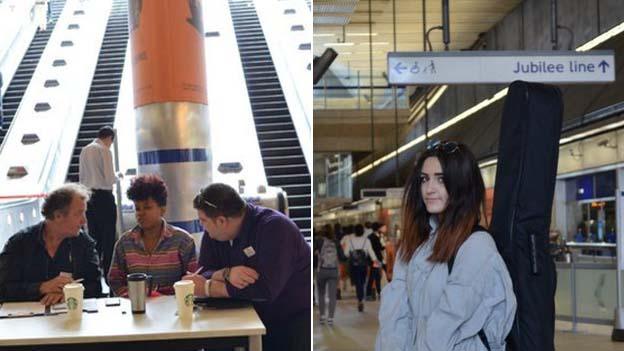
The view from Ella Bee's audition with the challenge to energise the space and commuters
At the cavernous entrance of Canary Wharf, 16-year-old Ella Bee, armed with her guitar, was one of the first up.
"I performed one of my original songs and also a cover," she said.
"My mum said that people enjoyed it so that's good," she says, focused on her grand ambition. "I'd like to tour with a band and busking is such a good stepping stone."
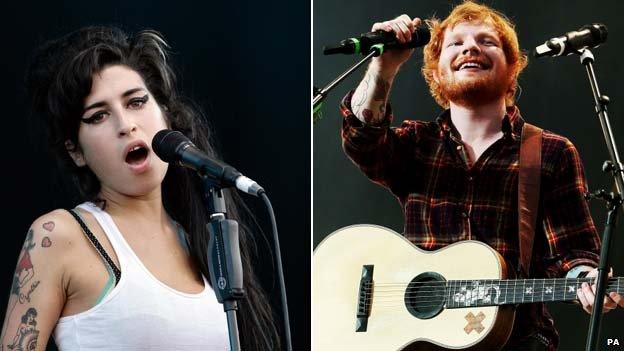
Many established musicians started their musical careers by playing on the streets
If successful Ella will join an exclusive club whose members include Ed Sheeran, Amy Winehouse and others who have gone on to be session musicians.
While Ed Sheeran famously sings, "I didn't go to Brit School". Ella, in fact, turned it down for another music school.
"Busking here will be good for performance practice and a good busker should be able to play anywhere and in font of anyone," she states.
Those are the kind of sentiments guitarist, producer and session musician Jay Stapley is looking for as he judges the auditions.
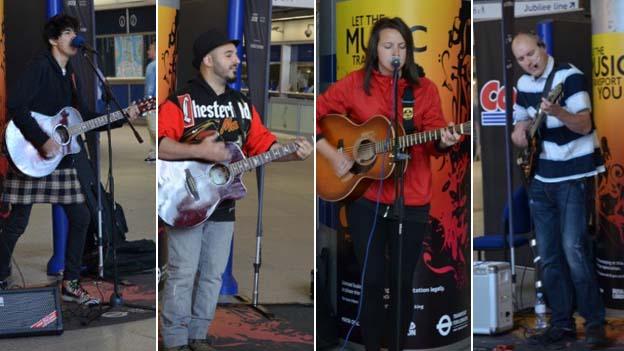
Angelo Costanzo, 31, (centre) had previously busked in his native Sicily
"Busking is part of the musicians traditional role in society," he says.
"When I was playing in football stadiums, busking was in a way more interesting because if you play at a stadium they've paid £100 for a ticket, so they're going to have a good time.
"When you stand up here on a station concourse nobody knows who you are."
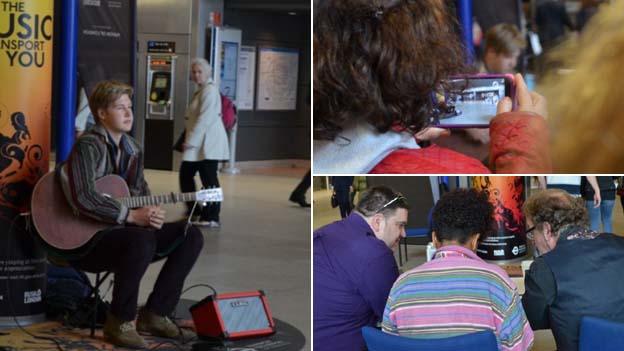
Will Walter has just finished school and is considering what to do next
Will Walter, 18, took a day off work as a tree-top instructor in Tunbridge Wells to audition with his guitar.
"I always loved coming to London because I'd hear music on the Tube," he says.
"I played a piece called Ocean by an Australian guitar player who used to busk... I don't know what the judges thought."

Busking facts
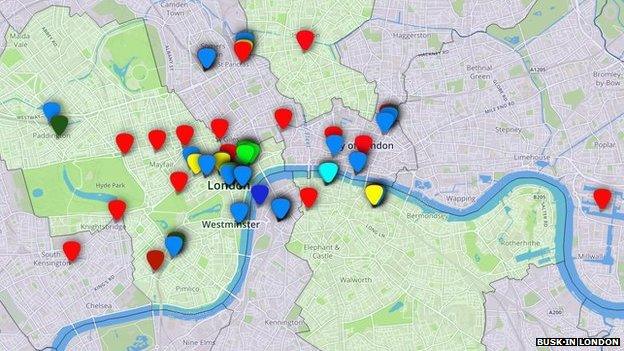
Buskers can use a map to find out which areas of London have bespoke pitches they can use
There are 230 licensed buskers and 39 pitches
Most buskers are aged 18 to 40 but the oldest is over 65
More than 100,000 hours of live music is generated annually
You have to be 16 to audition as a solo artist or a duo
West End stations including Leicester Square are the most lucrative

The panel scribble away and confer, marking each performer on musicality, technique and audience connection.
"I'm always looking around to see what the passers by are thinking," Mr Stapley says. "I'm hoping to see somebody that makes me smile and makes me feel good."
Across the UK the quality of buskers can vary, but beneath the capital, where trains hurtle-by every few minutes, it is more of an exacting science.
"The demand for busking pitches is so high. It's part of that Tube experience and in my opinion it shouldn't be open to everybody that can play a couple of chords," says Robert Varney who manages the scheme.
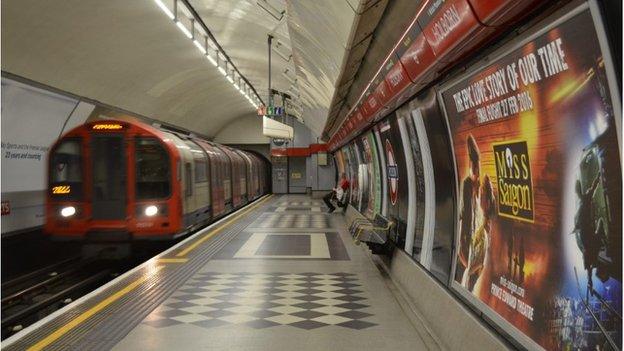
Buskers have to contend with Tubes every few minutes and announcements being made
Mr Varney will sit through all the auditions and says TV producers will then contact him to "poach" his best players.
"There are lots of musicians that start their craft in busking and it's that treat of being spotted in a very random location and making your fame.
"It's been a very mixed bag so far. We've had some really great talent and some slightly alternative presentations."
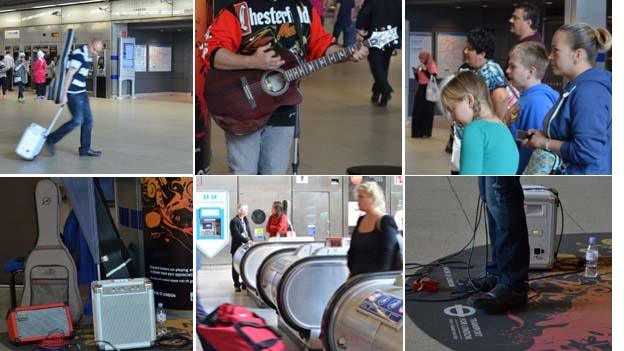
There was no warm-up or pre-amble for the auditionees who played in Canary Wharf's entrance
Is there anything that makes your heart sink? I ask. He diplomatically responds, "No, I'm pretty hardy," before adding with a sigh "everybody tries to look at how they can take the Underground names and squeeze it into a song. It's good if it's done well, not so much when it's not."
The official scheme, now run as part of the city's Busk In London programme, started in 2003 although the Underground has a history of performers long before then.
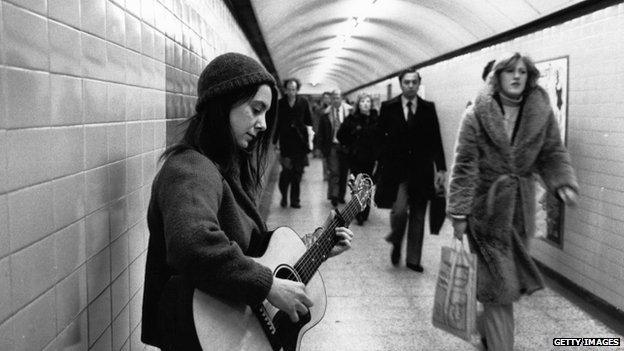
Buskers on the Tube in 1979 were a common site, 24 years before the official scheme began
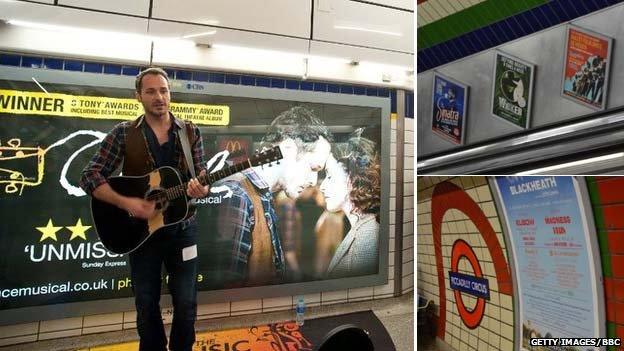
The Underground is a musical place be it aurally, visually or as part of advertising campaigns
Guitarist and singer Glen McAllister made busking his job 12 years ago and I find him at Oxford Street station during rush hour.
He pointedly remarks: "I'm wasting heaps of money here talking to you".
But about the busking he said: "It gives me independence although it can be touch and go.
"I play two hours a day, 10 times a week, or 12 if I'm getting really poor. Sometimes people are generous, but I wouldn't have said so recently."
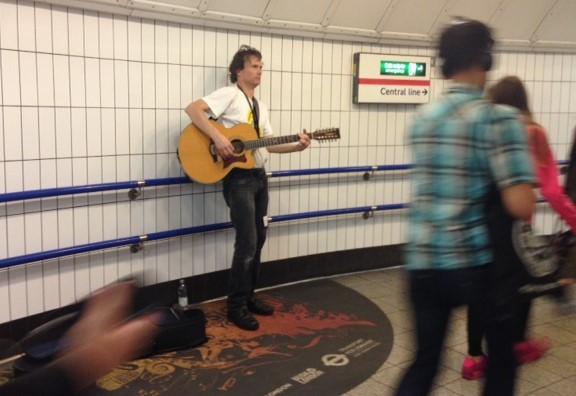
Time is money for Glen McAllister whose livelihood is tied up in entertaining commuters
But why have buskers become so integral to our image of the Tube - a transportation system?
Expat, Professor Adrian North, who specialises in the psychology of music at Curtin University, Australia says "they bring colour to an otherwise drab environment".

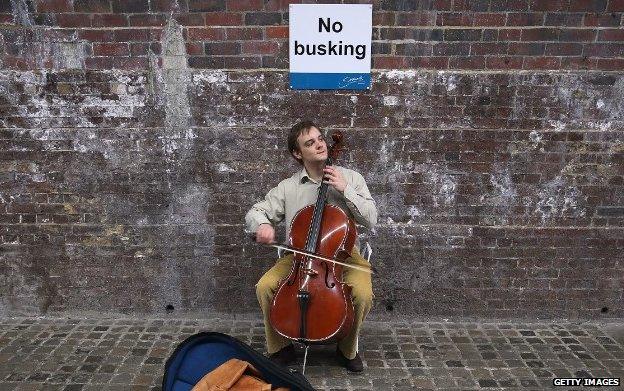
Buskers can book 12, two-hour slots every week
They must "check-in" for every session
Acts with varied content attract fewer complaints
Performers can accept donations but the public must never feel obliged to pay

"There is also anecdotal evidence that classical music in public spaces can discourage the congregation of people who would otherwise act anti-socially," he said giving an insight into its dual purpose.
During the auditions the musicians courted different responses from commuters and the panel alike.
But when one of these hopefuls took to the stage the station came to a stop, people listened and watched, and withheld from the desperate rush for the next train.
You, like them, must now wait to hear if they will play the Tube circuit.
- Published28 July 2014
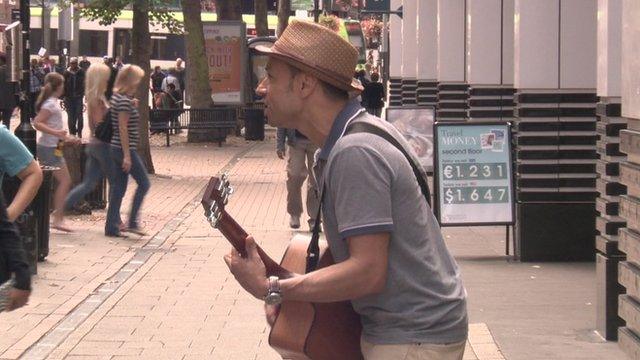
- Published15 March 2013
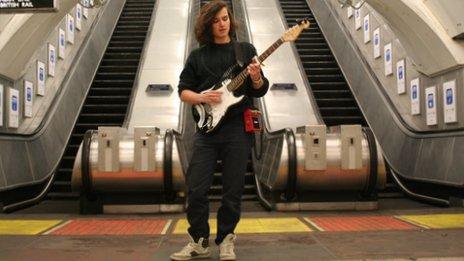
- Published14 December 2012
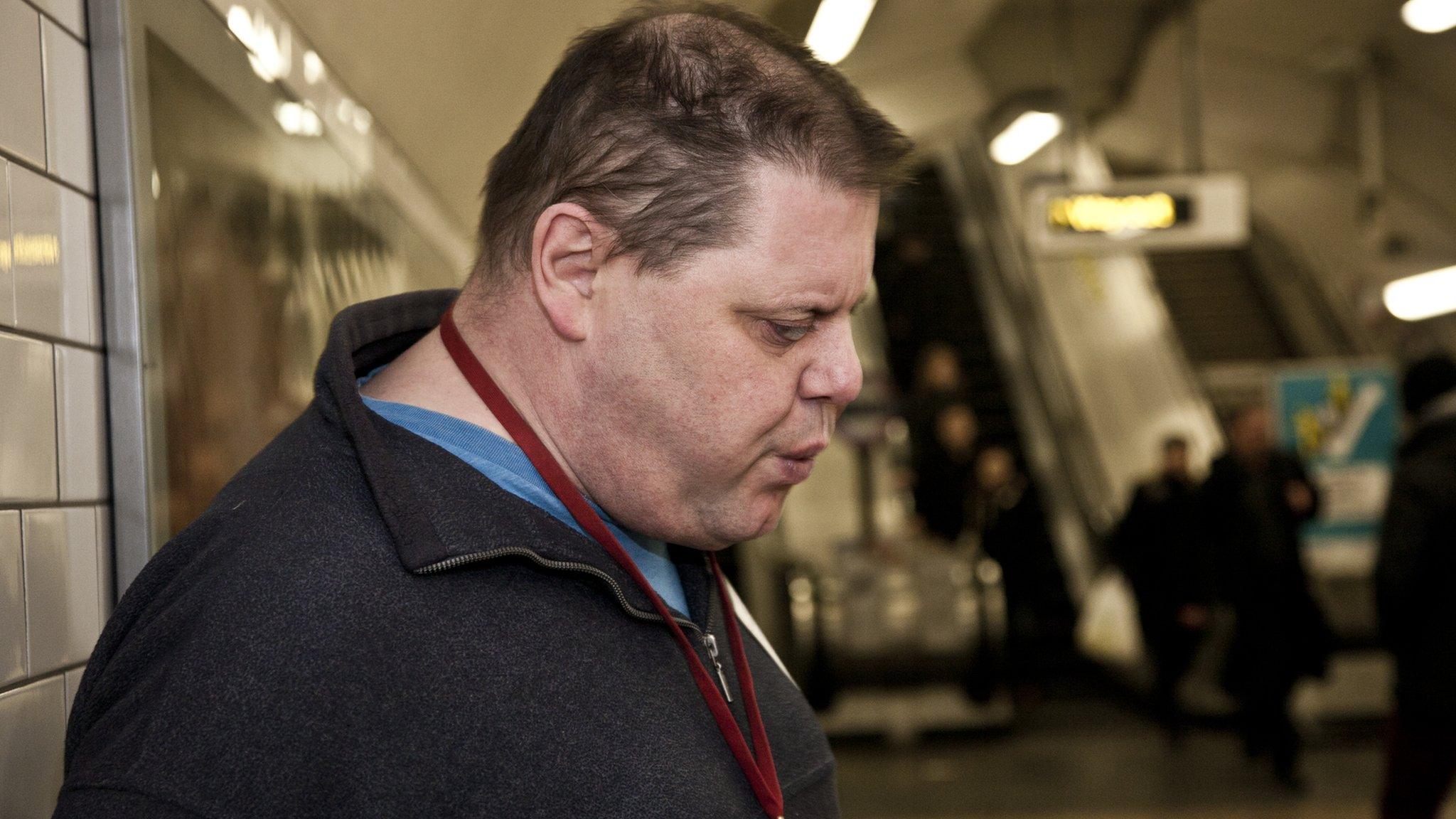
- Published27 May 2010